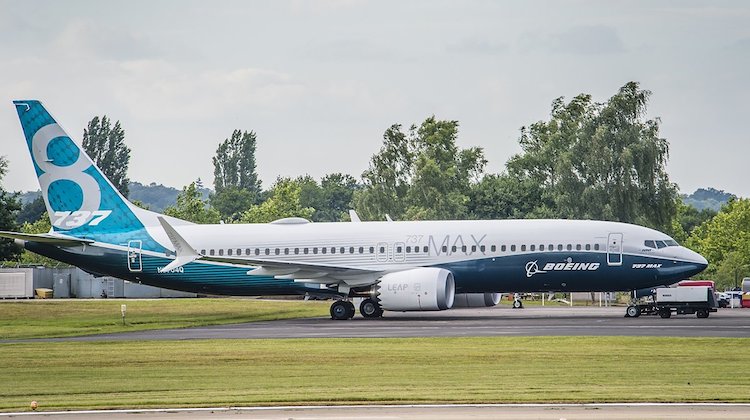
International Air Transport Association (IATA) director general and chief executive Alexandre de Juniac has called on regulators to collaborate and work towards the same timeline when re-certifying the return to service of the Boeing 737 MAX.
The global fleet of the Boeing 737 MAX has been grounded since mid-March, following two fatal crashes that have been linked to an anti-stall feature on the aircraft.
Boeing has developed a software update that it has said previously added extra layers of protection from erroneous angle of attack (AOA) data. The airframer has also updated the training requirements for pilots flying the aircraft.
The certification of the software update and training requirements have been submitted to the United States Federal Aviation Administration (FAA), which has said it was not working to any timetable regarding certifying the proposed changes.
In a bid to keep the rest of the world informed of its work, the FAA has set up a Joint Authorities Technical Review (JATR) team that has representatives from nine aviation regulators from around the world, including Australia’s Civil Aviation Safety Authority.
The JATR review team’s task was to conduct a detailed review of the certification of the Boeing 737 MAX’s automated flight control system.
Grounded 737 MAX 8s parked on Runway 11-29. This is not the first time airplanes have been stored at Paine Field pic.twitter.com/9ZCM2vbmuW
— Paine Airport (@mattcawby) April 9, 2019
IATA held a summit in Montreal on May 23 attended by airlines who have the aircraft type in their fleet to discuss the implications of the 737 MAX grounding. de Juniac said IATA planned to hold another gathering about the aircraft with its members, along with the regulator and manufacturer, in the next five to seven weeks.
De Juniac said regulators needed to find an appropriate compromise between what had to be done to ensure that the 737 MAX was certified to safely return to service, and ensuring this work could be done in a reasonable time frame that did the least harm to airlines and inconvenience to passengers.
“We are urging the regulators, first of all, to have the most comprehensive, consistent and collaborative approach,” de Juniac said.
Further, de Juniac called on regulators to “have the same timeline, if possible” for certifying the aircraft’s return to service.
“Otherwise it would create discrepancies and totally useless disruptions”
There would also need to be “full transparency” on what has been done to restore the confidence of the passengers regarding the safe entry into service of the aircraft.
“The compromise is to find the appropriate timeframe. Not to be too short to threaten safety and not to be too long to avoid the negative consequences on passengers and traffic,” de Juniac said.
While de Juniac said the recertification process was “not in our hands”, he said he “did not expect something before 10 to 12 weeks” in terms of the aircraft’s return to service.
An indication of the potential divergence of opinion between regulators was highlighted earlier in May, when it was reported the European Union Aviation Safety Agency (EASA) had set out pre-conditions that had to be met before it would give the green light for the 737 MAX to return to the skies.
The conditions highlighted a potential growing unease over the FAA’s conduct regarding the certification of the Boeing 737 MAX since the Lion Air crash in October 2018 and the Ethiopian Airlines crash in March 2019.
De Juniac said it was too early to offer an estimate on the costs to airlines of the 737 MAX grounding.
https://twitter.com/badassday/status/1122748430982504449




